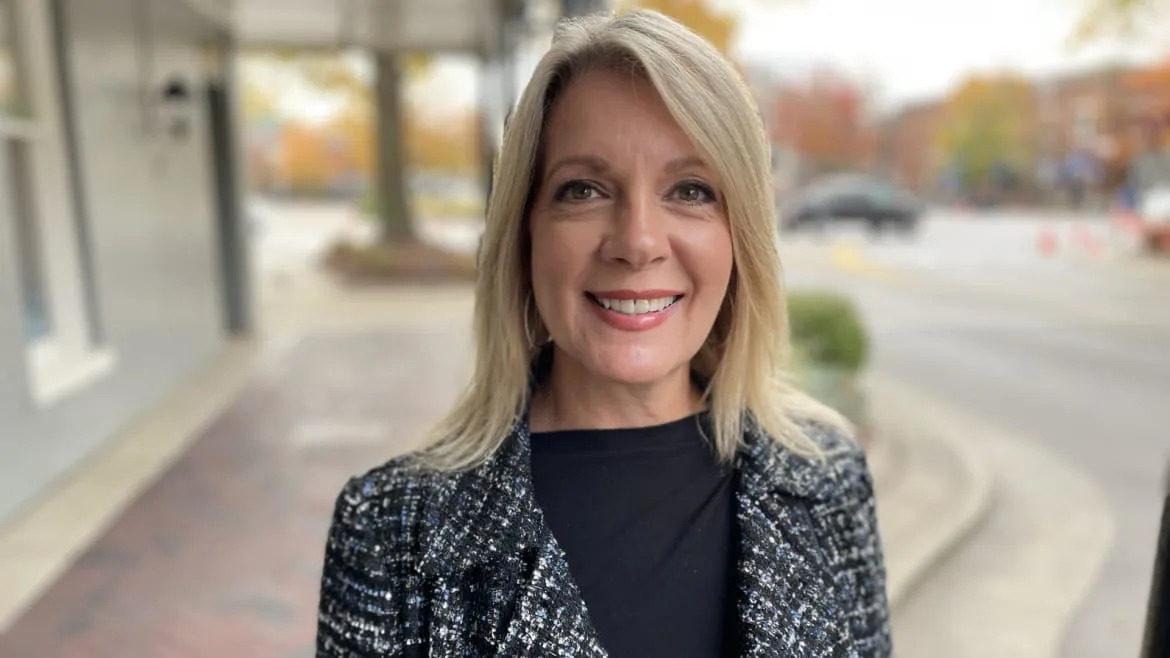Associated Press
Hamas surprise attack out of Gaza stuns Israel and leaves hundreds dead in fighting, retaliation
Josef Federman and Issam Adwan – October 7, 2023





JERUSALEM (AP) — Backed by a barrage of rockets, Hamas militants stormed from the blockaded Gaza Strip into nearby Israeli towns, killing dozens and abducting others in an unprecedented surprise attack during a major Jewish holiday Saturday. A stunned Israel launched airstrikes in Gaza, with its prime minister saying the country is now at war with Hamas and vowing to inflict an “unprecedented price.”
In an assault of startling breadth, Hamas gunmen rolled into as many as 22 locations outside the Gaza Strip, including towns and other communities as far as 15 miles (24 kilometers) from the Gaza border. In some places they gunned down civilians and soldiers as Israel’s military scrambled to muster a response.
Gunbattles continued well after nightfall, and militants held hostages in standoffs in two towns. Militants occupied a police station in a third town, where Israeli forces struggled until Sunday morning to finally reclaim the building.
Before daybreak Sunday, militants fired more rockets from Gaza, hitting a hospital in the Israeli coastal town of Ashkelon. The hospital sustained damage, said senior hospital official Tal Bergman. Video provided by Barzilai Medical Center showed a large hole punched into a wall and chunks of debris scattered on the ground of what appeared to an empty rooms and a hallway. There was no report of casualties.
Israeli media, citing rescue service officials, said at least 250 people were killed and 1,500 wounded in Saturday’s attack, making it the deadliest in Israel in decades. At least 232 people in the Gaza Strip were killed and 1,700 wounded in Israeli strikes, the Palestinian Health Ministry said. Hamas fighters took an unknown number of civilians and soldiers captive into Gaza.
The conflict threatened to escalate with Israel’s vows of retaliation. Previous conflicts between Israel and Gaza’s Hamas rulers brought widespread death and destruction in Gaza and days of rocket fire on Israeli towns. The situation is potentially more volatile now, with Israel’s far-right government stung by the security breach and with Palestinians in despair over a never-ending occupation in the West Bank and suffocating blockade of Gaza.
In a televised address Saturday night, Israeli Prime Minister Benjamin Netanyahu, who earlier declared Israel to be at war, said the military will use all of its strength to destroy Hamas’ capabilities. But he warned, “This war will take time. It will be difficult.”
“All the places that Hamas hides in, operates from, we will turn them into ruins,” he added. “Get out of there now,” he told Gaza residents, who have no way to leave the tiny, overcrowded Mediterranean territory of 2.3 million people.
Early Sunday, the Israeli military issued warnings in Arabic to residents of communities near the border with Israel to leave their homes and move to areas deeper inside the tiny enclave. In previous Israel-Hamas fighting on Gaza soil, the Gaza communities near the border were hit particularly hard, both by artillery fire and at times by ground incursions.
Gaza’s residents have endured a border blockade, enforced to varying degrees by Israel and Egypt, since Hamas militants seized control in 2007. Civilians are trapped and particularly vulnerable during wars and bouts of fighting.
Israeli airstrikes in Gaza intensified after nightfall, flattening residential buildings in giant explosions, including a 14-story tower that held dozens of apartments as well as Hamas offices in central Gaza City. Israeli forces fired a warning just before.
Around 3 a.m., a loudspeaker atop a mosque in Gaza City blared a stark warning to residents of nearby apartment buildings: Evacuate immediately. Just minutes later, an Israeli airstrike reduced one nearby five-story building to ashes.
After one Israeli strike, a Hamas rocket barrage hit four cities, including Tel Aviv and a nearby suburb. Throughout the day, Hamas fired more than 3,500 rockets, the Israeli military said.
The strength, sophistication and timing of the Saturday morning attack shocked Israelis. Hamas fighters used explosives to break through the border fence enclosing Gaza, then crossed with motorcycles, pickup trucks, paragliders and speed boats on the coast.
In some towns, civilians’ bodies lay where they had encountered advancing gunmen. At least nine people gunned down at a bus shelter in the town of Sderot were laid out on stretchers on the street, their bags still on the curb nearby. One woman, screaming, embraced the body of a family member sprawled under a sheet next to a toppled motorcycle.
In amateur video, hundreds of terrified young people who had been dancing at a rave fled for their lives after Hamas militants entered the area and began firing at them. Israeli media said dozens of people were killed.
Among the dead was Col. Jonathan Steinberg, a senior officer who commanded the Israeli military’s Nahal Brigade, a prominent infantry unit.
The shadowy leader of Hamas’ military wing, Mohammed Deif, said the assault was in response to the 16-year blockade of Gaza, Israeli raids inside West Bank cities over the past year, violence at Al Aqsa — the disputed Jerusalem holy site sacred to Jews as the Temple Mount — increasing attacks by settlers on Palestinians and the growth of settlements.
“Enough is enough,” Deif, who does not appear in public, said in the recorded message. He said the attack was only the start of what he called “Operation Al-Aqsa Storm” and called on Palestinians from east Jerusalem to northern Israel to join the fight.
The Hamas incursion on Simchat Torah, a normally joyous day when Jews complete the annual cycle of reading the Torah scroll, revived painful memories of the 1973 Mideast war practically 50 years to the day, in which Egypt and Syria launched a surprise attack on Yom Kippur, the holiest day of the Jewish calendar, aiming to take back Israeli-occupied territories.
Comparisons to one of the most traumatic moments in Israeli history sharpened criticism of Netanyahu and his far-right allies, who had campaigned on more aggressive action against threats from Gaza. Political commentators lambasted the government and military over its failure to anticipate what appeared to be a Hamas attack unseen in its level of planning and coordination.
Asked by reporters how Hamas had managed to catch the army off guard, Lt. Col. Richard Hecht, an Israeli army spokesman, replied, “That’s a good question.”
The abduction of Israeli civilians and soldiers also raised a particularly thorny issue for Israel, which has a history of making heavily lopsided exchanges to bring captive Israelis home. Israel is holding thousands of Palestinians in its prisons. Hecht confirmed that “substantial” number of Israelis were abducted Saturday.
Associated Press photos showed an elderly Israeli woman being brought into Gaza on a golf cart by Hamas gunmen and another woman squeezed between two fighters on a motorcycle. AP journalists saw four people taken from the kibbutz of Kfar Azza, including two women.
In Gaza, a black jeep pulled to a stop and, when the rear door opened, a young Israeli woman stumbled out, bleeding from the head and with her hands tied behind her back. A man waving a gun in the air grabbed her by the hair and pushed her into the vehicle’s back seat. Israeli TV reported that workers from Thailand and the Philippines were also among the captives.
Netanyahu vowed that Hamas “will pay an unprecedented price.” A major question now was whether Israel will launch a ground assault into Gaza, a move that in the past has brought intensified casualties.
Israel’s military was bringing four divisions of troops as well as tanks to the Gaza border, joining 31 battalions already in the area, the spokesman Hagari said.
In Gaza, much of the population was thrown into darkness after nightfall as electrical supplies from Israel — which supplies almost all the territories’ power — were cut off. Netanyahu’s office said in a statement that Israel would stop supplying electricity, fuel and goods to Gaza.
Hamas said it had planned for a potentially long fight. “We are prepared for all options, including all-out war,” the deputy head of the Hamas political bureau, Saleh al-Arouri, told Al-Jazeera TV. “We are ready to do whatever is necessary for the dignity and freedom of our people.”
U.S. President Joe Biden said from the White House that he had spoken with Netanyahu to say the United States “stands with the people of Israel in the face of these terrorist assaults. Israel has the right to defend itself and its people, full stop.”
Saudi Arabia, which has been in talks with the U.S. about normalizing relations with Israel, called on both sides to exercise restraint. The kingdom said it had repeatedly warned about the danger of “the situation exploding as a result of the continued occupation (and) the Palestinian people being deprived of their legitimate rights.”
Lebanon’s Hezbollah militant group congratulated Hamas, praising the attack as a response to “Israeli crimes.” The group said its command in Lebanon was in contact with Hamas about the operation.
The attack comes at a time of historic division within Israel over Netanyahu’s proposal to overhaul the judiciary. Mass protests over the plan have sent hundreds of thousands of Israeli demonstrators into the streets and prompted hundreds of military reservists to avoid volunteer duty — turmoil that has raised fears over the military’s battlefield readiness.
It also comes at a time of mounting tensions between Israel and the Palestinians, with the peace process effectively dead for years. Over the past year, Israel’s far-right government has ramped up settlement construction in the occupied West Bank, Israeli settler violence has displaced hundreds of Palestinians there and tensions have flared around a flashpoint Jerusalem holy site.
Palestinians demonstrated in towns and cities around the West Bank on Saturday night. Palestinian health officials said Israeli fire killed five there, but gave few details.
Adwan reported from Rafah, Gaza Strip. Associated Press writers Wafaa Shurafa in Gaza City and Isabel DeBre and Julia Frankel in Jerusalem contributed to this report.








